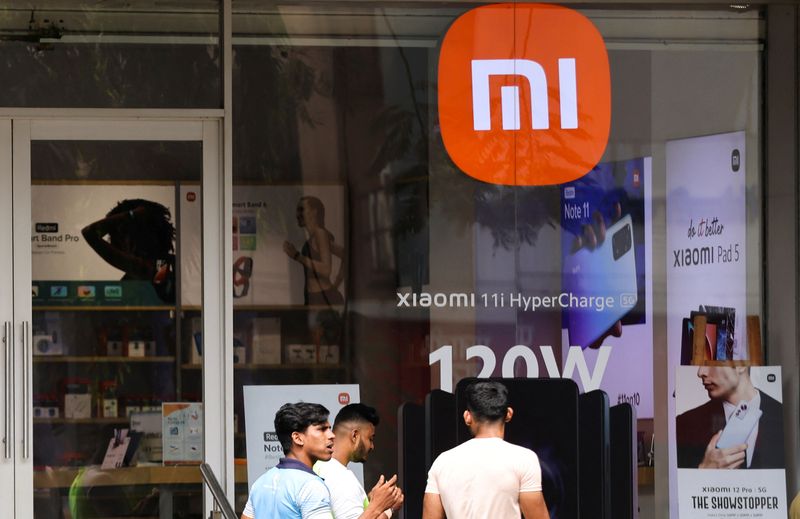By Aditya Kalra
NEW DELHI (Reuters) -China's Xiaomi (OTC:XIACF) will focus on boosting its India sales from retail outlets after years of big bets on e-commerce, its India president said, as the company seeks to revive smartphone sales after falling behind South Korea's Samsung (KS:005930).
E-commerce sales in India via Amazon (NASDAQ:AMZN) and Walmart (NYSE:WMT)'s Flipkart have surged in recent years, helping Xiaomi and others expand in one of the world's fastest-growing markets, with 600 million smartphone users.
But while 44% of India's smartphones sales are now online, the brick-and-mortar segment remains the bigger play and Xiaomi expects it to grow further.
"Our market position in offline is substantially lower than what it is online," Xiaomi's India head, Muralikrishnan B., said in an interview on Friday. "Offline is where you have other competitors who have been executing fairly well and have a larger market share."
Just 34% of Xiaomi's India unit sales this year have come from retail stores, with the rest through websites that have long been its dominant sales generator, data from Hong Kong-based Counterpoint Research shows. Samsung, in contrast, gets 57% of its sales from stores.
Xiaomi plans to expand its store network beyond the current 18,000 and increasingly partner with phone vendors to offer other products, such as Xiaomi TVs or security cameras, where Muralikrishnan said competition is less intense.
He said Xiaomi found some partner stores that put its bright orange branding outside shops were displaying rival brands more prominently inside, a marketing issue the company would address.
Xiaomi's offline push comes months after it lost its leadership position to Samsung, which had a much bigger portfolio of premium phones now in vogue. The South Korean giant has a 20% market share in India, while Xiaomi, which historically focussed on budget phones, has 16%.
"Offline remains a key platform as India embraces the premiumisation trend," said Counterpoint analyst Tarun Pathak. "Consumers spending more would like to have the look and feel of the premium product."
Xiaomi plans to hire more store promoters - salespeople who lure, pitch and sell phones to prospective buyers inside outlets. It targets tripling the count to 12,000 promoters by the end of next year from early 2023 levels, Muralikrishnan said.

Another significant India challenge for Xiaomi is a federal agency's $673 million freeze on its bank assets since last year. The agency alleges Xiaomi made illegal remittances to foreign entities in the name of royalties. The company denies wrongdoing.
"We'll continue to be confident ... that ultimately our position will be heard and validated," Muralikrishnan said.